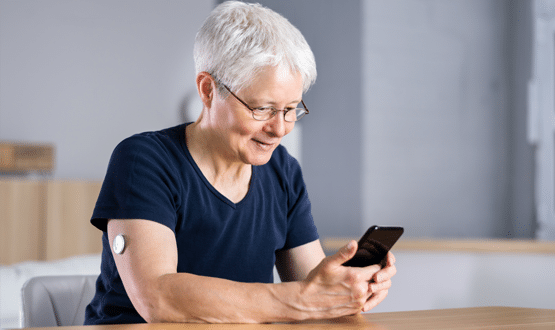Kent uses telehealth for chronic disease support
- 15 March 2005
Kent County Council has launched a series of telehealth and telecare initiatives, in what it claims makes it one of the leading local authority users of new technology.
The countywide Kent Telehealth scheme is a partnership between Viterion in the USA and Kent County Council, with KCC providing £1m funding for a pilot project to support 275 people with chronic diseases in their own homes.
Clients have been drawn from Ashford, Maidstone Weald, South West Kent and Dartford, Gravesham and Swanley PCTs.
Each will be provided with a touch screen, video link-up and digital cameras. They will be able to self-assess and monitor chronic conditions and then communicate with health and social care professionals via a telephone line to a secure web-based facility.
The scheme proposed to cover conditions such as chronic obstructive pulmonary disease, diabetes and asthma, congestive heart failure and depression.
According to Viterion such systems in the US have cut hospital admissions by half and meant reduced travelling time and costs for patients.
The council is also pioneering use of telecare at HomeBridge, a joint health, housing and social services project in Ashford that provides recuperative care for older people who have been discharged from hospital but are not ready to return home.
The project’s seven bungalows have been upgraded to the latest Tunstall telecare overlay which allows staff to use remote detectors to monitor clients for falls or changes in daily routines.
Housing manager Richard Robinson said: "It’s aimed at preventing readmission to hospital and gives an opportunity for clients to use equipment and realise that with the right support they can use it and can live independently."
Kent’s announcement comes as the Department of Health tries once again to kick start the use of telecare and telehealth in preventing hospital admissions of older people.
Health minister Stephen Ladyman last week announced a £60m fund for councils to develop innovative ways to help older people avoid emergency admissions and live independently longer.
Despite being endorsed by the House of Commons Health Select Committee in 2002 and the Audit Commission last year, telecare has yet to make a real impact in reducing hospital admissions.
Mike McCurry, board member of the UK eHealth Association, said: "There have been a number of attempts on a pilot basis and there are some good pilot projects around. But we are not seeing these translated into mainstream initiatives with long term funding."
Using telecare and telehealth systems required more than installing equipment and software, he said. "It requires a new way of working and a lot of change management."
The UK lacked a strong business case that could be used to persuade PCTs and local authorities to fund telecare and telehealth properly, he added.
James Barlow, professor of Technology and Innovation Management at Imperial College’s Tanaka Business School, agreed that uptake had been slow, with very little mainstream development despite a multitude of pilot projects.
But he added: "The speed is picking up and seems to be building up to a critical mass."
He agreed that the evidence base was poor and that development was hindered by budgeting constraints. He is now chairing a group set up by the DH to develop a business case for telecare, weighing up the costs and benefits.
He said: "Without wishing to prejudge that work, the results are encouraging and the benefits are clear. It comes down the right side of the cost of equipment and the benefit it provides. "
Professor Barlow’s work is designed to inform the £80m preventive technology grant announced in last year’s spending review. This will be available from 2006-2008 and will enable 160,000 older people to live at home.
It is part of the DH’s Telecare Policy Collaborative, set up last September and expected to report this summer.
He said: "The big issue is who pays for what. Social services invest in the equipment but the benefit is accrued by people on the acute side. Getting acute trusts to cough up will be difficult."




